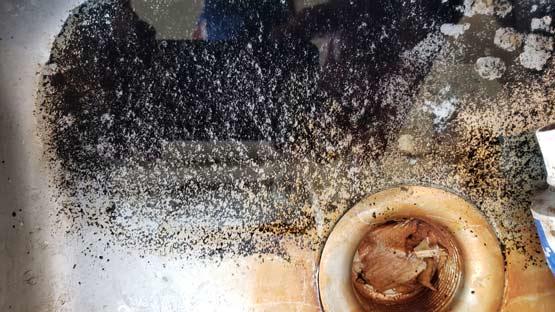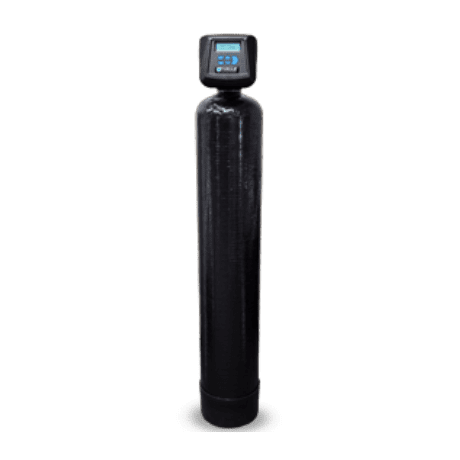There are two main sources for the water that feeds your home — it can come from the city with the municipal utilities they provide, or from a private well if you live too far outside of city limits. The city does have some water treatment done prior to it is delivered to your home, but who is responsible for water that comes from a well?
The answer is that the homeowner needs to be the one taking the initiative to check on their water supply. Even if you had the water tested years ago when you first moved to the property or had the well drilled, what’s in your water can change easily due to the environment around it. Our team of experts at Hague Quality Water recommend having well water tested at least once per year to ensure nothing has contaminated your supply since the last time you checked.
WHAT COULD CONTAMINATE MY WELL WATER?
A number of things could be introduced to your water supply if it’s coming from your well because the water is traveling through the ground and bedrock to get there. Water has a tendency to gather little pieces of everything it touches, so it is very unlikely that it is pure H2O while it’s in your well.
Here are the most common things found in well water across the United States:
- Calcium/Magnesium (hardness)
- Iron
- Manganese
- Hydrogen Sulfide (sulfur gas)
All of these items are materials that exist in nature. Each one also has a way of introducing extra hassle to your everyday life.
EFFECTS OF HARDNESS IN MY WATER
Calcium and magnesium are essentially particles of dissolved rock or limestone. According to the U.S. Geological Society, 85% of homes in America are affected by hard water. Having this dissolved rock in your water is not going to affect your health at all if you drink it, but you may have concerns about what it is doing inside your home.
Hard water will leave these particles behind leaving crusty white residue on anything it touches, often referred to as “scale” buildup. This scale is the rock reforming throughout your home, including inside your appliances. Scale build up in water heaters, dishwashers, washing machines, coffee pots, humidifiers and other conveniences that you use every day causes them to be less efficient or even damaged over time.
Bathing in hard water also takes a toll on your skin and hair, causing them to be dry and brittle. The calcium also prevents soap and detergents from being able to do their job. It bonds to the soap molecules, turning them into a sticky curd. You may recognize this curd as the ring of soap scum around your bathtub. This soap scum also gets embedded into your hair in the shower or in the fabrics of your clothes in the wash. That’s why towels that are washed in hard water end up feeling stiff and crunchy; they’re full of dried soap scum!
The only way to remove hardness is with a water softener. At Hague Quality Water, we make some of the most flexible and efficient models available. Combine that with our network of local authorized dealers to test your water and install the system, you have a worry-free way to reducing the calcium within your home.
IRON AND MANGANESE IN WELL WATER
Both iron and manganese also contaminant well water because it exists in the ground where you live. It is not as common as hardness so there are areas of the country that don’t need to worry about these while others having brown water coming out of their faucet because it’s so bad.
Iron and manganese naturally act very similar and are typically found together. They are OK to drink, but if you have high levels in your water it may make it taste metallic. Iron in your water will also cause reddish brown stains on anything it touches. Once the water dries on the surface of your sinks, toilets, and drains, the iron becomes iron oxide which is also how rust is formed.
Manganese will also cause staining, but it is very dark brown or black in color. Both iron and manganese deposits can build up inside your plumbing as well, clogging it like an artery. It’s recommended to filter these out before using the water throughout your entire house not only to prevent the embarrassing stains, but protect your plumbing as well. Your local Hague Dealer can teach you about our whole home iron filter to avoid the problems all together.

WELL WATER WITH HYDROGEN SULFIDE
Hydrogen sulfide is a gas stuck inside the water while it’s underground in your well. As the water flows out of your faucets, that gas begins to be released and gives off a harsh “rotten egg” odor. Really concentrated amounts of hydrogen sulfide can always lead to black stains in your fixtures and appliances.
This is also not harmful to drink, but it can be difficult to get past the smell in order to take a sip! Not all areas of the country have issues with hydrogen sulfide, but those that do find it hard to ignore. Luckily, a Hague Quality Water whole home sulfur filter can remove the issue and make your entire home smelling fresh again.
HOW DO I TEST MY WATER?
Hague Quality Water strives to provide the best water possible for everyone, which is why we distribute our products exclusively through trained dealers that offer a free in-home water test. This complimentary service can help you determine what is in your well water and ensure no new contaminants have entered it since your last test. If you have a private well, we really encourage you to contact one of our dealers to conduct an in-home water test.


